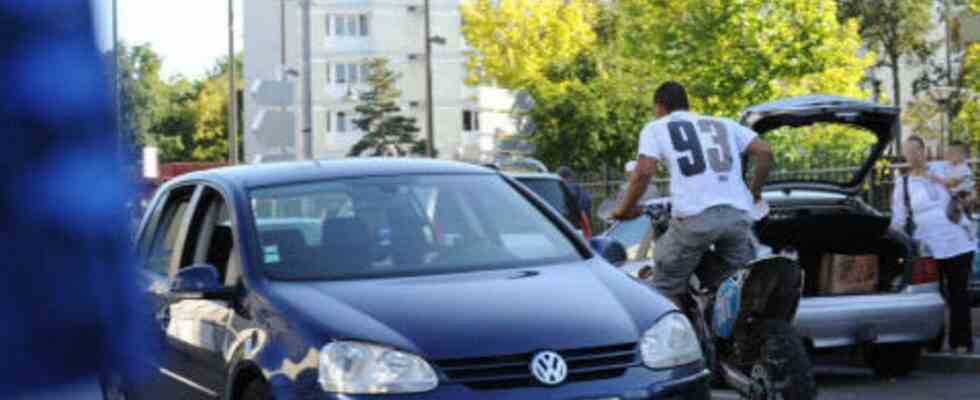The answer was not long in coming. Monday, barely two days after the accident which seriously injured two children aged 7 and 11 in Val-d’Oise, hit by a young man on a motorcycle, the Minister of the Interior raised his voice. “The government has an extremely firm hand against – not these urban rodeos which are presented as a positive word, as if it were a spectacle – but against these often criminal acts which come to kill, which come to seriously injure”, underlined Gérald Darmanin during a visit to Marseille.
In reaction to this weekend’s new tragedy, the tenant of Place Beauvau also announced an “intensification” of police checks, setting a target of 10,000 operations to fight against these two-wheel races on all the territory during the month of August. Criminally repressed since 2018 in France, this phenomenon of “urban rodeo” is however struggling to be stemmed. Across the Channel, the police use an intervention technique that seems to appeal to police unions here. What is it and is importing such a method desirable? 20 minutes make the point.
- What does this technique consist of?
Experimented since 2018, the so-called “tactical contact” method of arrest was clarified in 2019 by the English police. This technique, which requires mandatory training for law enforcement, can end a chase with a two-wheeler by “establishing deliberate contact” between the police vehicle and the suspect’s motorcycle.
Assessing the seriousness of the offence, the risk incurred for the driver of the moped, for passers-by and the policeman himself is essential to carry out this type of operation, indicated the IOPC, the Independent Office for Police Conduct, British Constabulary Police. In London, the Metropolitan Police uses this tactical contact not to intervene on urban rodeos but mainly for snatching committed on motorcycles, which have become more and more frequent in the capital.
This method is not without risk. This is also the reason why the IOPC demanded a clarification of the rules applied to tactical contact one year after its implementation. Indeed, several investigations have targeted police officers after failed interventions during which fleeing suspects were seriously injured by the impact with the police car. But the use of this technique is considered “legitimate” by Scotland Yard.
According to the London police, quoted in an article by Sunday Times, tactical contact has contributed to a significant drop in crime committed using motorcycles or scooters in the capital. “12,419 motorcycle crimes were reported in London between January and October 2018, which is a substantial reduction from the 19,455 incidents recorded during the same period last year,” thus indicated the British newspaper.
- What do the police unions think?
Should this method be imported? In France, the police unions are divided. The Alliance organization is in favor of it and has been calling for it “for several years”, specifying 20 minutes its general secretary, Fabien Vanhemelryck. “We can clearly see that pedagogy does not work with urban rodeo enthusiasts who are in a form of impunity. We don’t know how to deal with them. The English method seems simpler to us, ”explains the policeman. Aware of the “necessary training” that the deployment of this technique would imply, Alliance also pleads for the modification of the legal arsenal in order to “protect the police”.
An element deemed fundamental by Jérôme Moisant, deputy secretary general of the SGP Police-FO Unit union, is more circumspect. “Our subject is above all the legal certainty of colleagues. We will think about the hypothesis of such a doctrine the day we are offered it only and only if we know that it is accompanied by a protective legal framework for the police officer behind the wheel responsible for arresting in this way “, he decides.
It remains to be seen whether this doctrine is likely to convince the legislator. On this point, nothing is less certain. In 2021, in an August 2018 law assessment report which punishes urban rodeos more harshly, two deputies insisted on the framework in force in France. Recalling that the police and gendarmes were instructed to only initiate proceedings in the event of “serious offences”, for perpetrators “likely to endanger the lives of others”, they asked to favor “deferred” arrests, in particular by raising the license plate, rather than interventions in the heat of the moment, considered more risky and dangerous.

